Regime Crackdown Continues: 11 Arrested In Iran’s Gilan Province
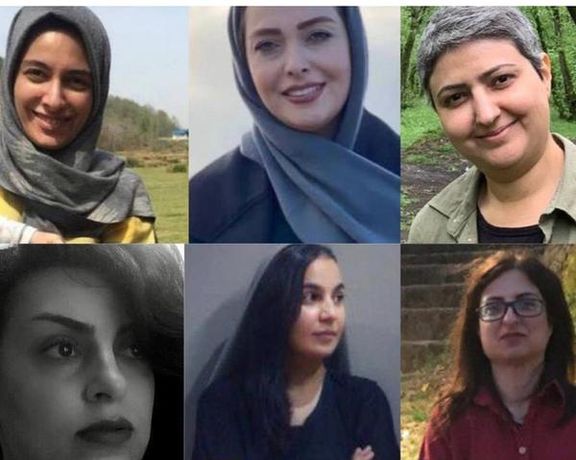
Iran's security forces have apprehended 11 citizens, including prominent women's rights activists, in a wave of arrests across several cities in Gilan province.

Iran's security forces have apprehended 11 citizens, including prominent women's rights activists, in a wave of arrests across several cities in Gilan province.
On Wednesday, security forces arrested and detained 11 citizens including five women's rights advocates, a photographer, a poet, a graphic designer, and three pharmacists.
Grounds for the arrests, which took place in the cities of Rasht, Fuman, Anzali, and Lahijan, remain unclear and no details have emerged of the prisoners’ wellbeing. Reports indicate that the majority were apprehended after security forces raided their homes.
This is the latest in a string of government clampdowns on activists, students, educators, and writers in the lead-up to the September 16th anniversary of Mahsa Amini’s death at the hands of police whilst in custody, which sparked nationwide protests.
In recent weeks, a significant number of university students across Iran have reported receiving anonymous phone threats and summonses by security agencies. Similar reports have been made by families of victims who have died in uprisings, particularly on the anniversaries of deaths. These threats are assumed as efforts to deter commemorative gatherings.
Additionally, there have been reports of security pressures exerted on families of the victims of the uprising particularly occurring on the anniversaries of deaths. perceived as efforts to deter commemorative gatherings.
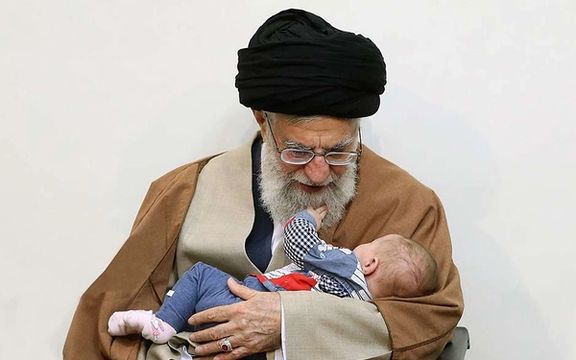
A new ban in Iran on screening kits for congenital anomalies has worried many who fear a sudden surge in the number of children being born with birth defects.
The health ministry’s food and drug administration website announced last week that it will no longer issue permits for production or imports of pregnancy associated plasma protein-A (PAPP-A) and free beta human chorionic gonadotropin (Beta-hCG) test kits.
Media have also reported that the ministry has been refusing to allow production or importation of enzyme linked immunosorbent assay (ELISA) tests.
These tests usually carried out during the first trimester of pregnancies are used to identify and assess the risk of various congenital conditions such as Down Syndrome and fetal aneuploidy (chromosomal anomalies) such as trisomy.
When asked about the discontinuation of the production and imports of these kits on Monday, the ministry spokesman, Pedram Pak-Ayeen, claimed that there was no ban and fetal screening has only been “standardized”.
The spokesman’s denial of the ban does not seem to be convincing to many including genetics experts and women’s rights activists who say denying them to women to preclude possibility of abortion is interfering in people’s personal decisions and violates women’s right to their bodies.
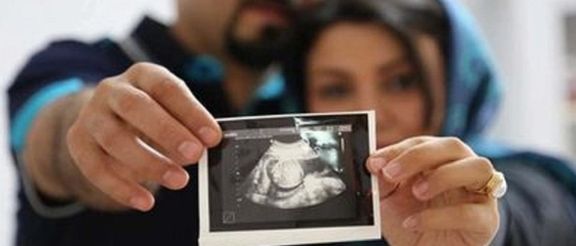
Calling the ministry’s decision “shocking”, Dr Mohammad-Amin Tabatabei, a member of the board of directors of the Iranian Genetics Society, said Monday that Iranians will be facing a greater risk of babies born with congenital and genetic anomalies due to the ban.
Tabatabaei stressed that the ministry has not consulted the genetics society and that the society will officially protest to the decision soon and demand a re-evaluation and warned that the ban could result in illegal imports of “notoriously expensive kits of uncertain standards.”
“Until now we had underground abortions, now we are going to have underground screening too,” a medical professional, Dr Mohammad Mir-Mohammadkhan, said in a post on X (former Twitter) Sunday.
Abortions have always been illegal in Iran, but termination was allowed during the first 18 weeks of pregnancy if the fetus was diagnosed with genetic disorders or carrying the fetus to term threatened the mother’s health or life.
On April 17, Soleiman Haydari, an official of the health ministry, told the Iranian Students News Agency (ISNA) that annually as many as 10,000 abortions were legally carried out.
In the past ten years the Iranian healthcare system has hugely limited screening tests and legal abortions and completely stopped its decades-old family planning programs.
Iran’s primary healthcare program had introduced several screening tests In 1991 that were routinely carried out as part of the existing mandatory premarital blood tests to prevent and control non-communicable diseases which have now been abandoned.
The government has also banned the sale of contraceptives and taken tough action against doctors and midwives who assisted terminations outside the healthcare system and shut down their clinics.
In July 2022 the health ministry announced that it had established a portal for medical professionals to register all pregnancies as a preventative measure against illegal abortions.
Iran's Supreme Leader Ali Khamenei believes efforts to increase the country's population are among the most urgent duties and essential policies of the Islamic Republic as the leading Shia country in the Muslim world and has repeatedly demanded that the population increase to 150 million.
The childbirth rate in Iran has been steadily declining over the past few decades. In the early 1980s, the population growth rate reached 4.8 percent. This rate has dropped to below one percent in the past decade.
Iran's population has doubled from around 40 million in the early 1980s to 84 million, but a declining birth rate means the median age at 32 is about the same as Saudi Arabia at 31.8, but higher than Iraq at 21.
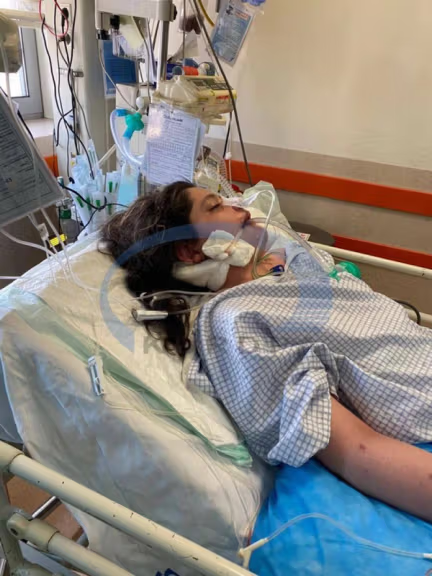
One of Iran’s hardline conservatives has slammed officials for apologizing for Mahsa Amini’s death in custody of hijab police.
In an interview on state TV, Mohammad Sadegh Koushki, a Tehran University professor, said apologies for Amini’s highly publicized death are an "incorrect move."
Koushki said, "What prompts the need for apologies? [The death of Mahsa Amini] was an unintended outcome. It is indeed the subsequent apologies of certain high-ranking figures that have inadvertently exacerbated the situation."
He added that fatalities to detainees during detention and interrogation are inherently "very natural."
Currently, no officials from the Islamic Republic have formally extended apologies for Mahsa Amini's death or for the loss of numerous other lives even in the wake of nationwide protests.
During a televised interview, Mohammad Bagher Ghalibaf, the Speaker of the Parliament, indicated that he had formally requested an apology from the law enforcement forces. However, no formal apology has been issued to date.
In a conversation with Mahsa Amini's family, President Ebrahim Raisi, abstained from issuing an apology. Instead, he committed to clarifying the full "dimensions" of the circumstances surrounding Amini's death—an assurance that, as of the present date, remains unfulfilled.
Mahsa Amini's death in custody was not an isolated incident. Sattar Beheshti, an outspoken blogger, and Zahra Kazemi, an Iranian-Canadian photographer, and many others, also lost their lives as a result of aggressive interrogations carried out by agents of the Islamic Republic. The true number of deaths has not been not officially recorded.
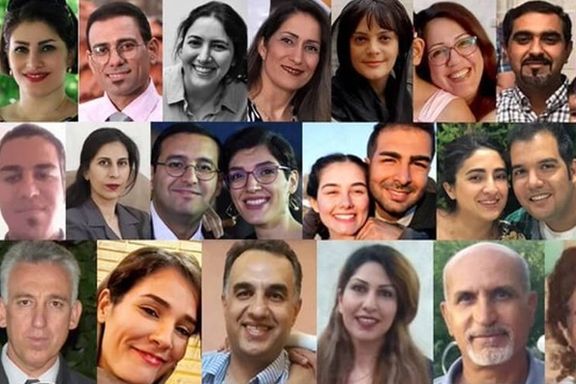
Baha'is around the world are protesting against a recent surge of repression against the Baha'i community in Iran
Nearly 60 members of the minority faith group have been arrested or imprisoned in recent weeks, and 180 further members have been subjected to a relentless campaign of torture.
On Tuesday, the global Baha'i community confirmed that the detained individuals include a 90-year-old man, Jamaloddin Khanjani, who has a history of imprisonment in Iran due to his religious beliefs. He was apprehended along with his daughter, Maria.
Khanjani's previous decade-long imprisonment, from 2008 to 2017, was a result of his affiliation with Yaran, an administrative group established in response to the prohibition of official Baha'i institutions in Iran. The Yaran group, which was dissolved in 2008, sought to cater to the spiritual needs of the community. Each of it seven members were initially handed 20-year sentences, which were later reduced to 10 years and were released in 2018.
Highlighting the escalating repression, Baha'is around the world highlighted the cases of Mahvash Sabet and Fariba Kamalabadi, former members of Yaran. Both women, who were arrested on July 31, 2022, recently received confirmation of their 10-year prison sentences from an appeals court. Sabet, 70, who suffers from severe physical ailments, was among those sentenced. Afif Naimi, another Yaran member who also faced significant health issues, was sentenced to seven years imprisonment.
Meanwhile, the government's crackdown extended to the arrest of nine additional Baha'is on August 13. Accused of disrupting the drug supply, these individuals, including pharmacy owners and employees, had their businesses sealed and closed.
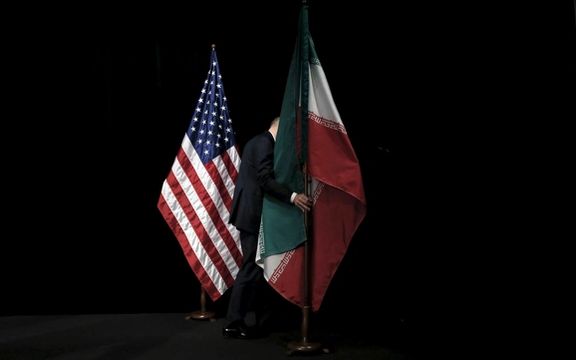
The former US Secretary of State, Mike Pompeo, has warned that the latest prisoner release deal with Iran, providing billions in ransom, sets a “dangerous precedent”.
Five US citizens unlawfully held in Iran have been released on the back of a deal which has freed up at least $6bn of funds from South Korea, but experts say the price is too high. “This will only encourage more hostage taking by the Iranian terrorists” Pompeo said.
During an interview with radio host John Catsimatidis, he spoke about the deal which will see billions of dollars sent to Qatar, which the US continues to assert will be used for the likes of humanitarian aid, in accordance with sanctions rules. "It's really dangerous," Pompeo said on "The Cats Roundtable" on 77 WABC.
"It's dangerous for the Gulf nations, it's dangerous for … Israel.” Pompeo said paying for the Americans' release will only help "build their [Iran's] economy" and encourage more hostage-taking … You now have a situation where we have told the Iranians, For every American you take, the Biden administration will provide you with $1bn," Pompeo told Catsimatidis.

Richard Goldberg, a senior adviser at the Foundation for Defense of Democracies and former White House National Security Council director for countering Iranian weapons of mass destruction, echoed the fears.
“President Joe Biden’s decision to trade $6 billion for five American citizens unlawfully detained in Tehran isn’t just the largest hostage ransom payment in American history—it’s also the second phase of an unacknowledged agreement with Tehran that strengthens the ayatollah’s position in the Middle East and frees the regime to cross the nuclear weapons threshold at a time of its choosing. Americans need to brace themselves for the consequences of both realities,” he wrote this week.
He said that what would normally be a celebratory welcome home for the Americans is now overshadowed by the methods used to win their release and the implications of a foreign policy he says is “bent on appeasing the world’s leading state sponsor of terrorism”.
He raised the issue that the White House announced the latest deal during the August congressional recess, accusing Biden of skirting the legislation to protect any changes being made to the Iran Nuclear Agreement Review Act.
“Emergency hearings cannot be held. Resolutions of disapproval cannot be fast-tracked. President Biden has successfully evaded the Iran Nuclear Agreement Review Act, which requires him to notify Congress of any agreement with Iran related to its nuclear program before lifting sanctions.”
It is not the first time Iran has won in the hostage diplomacy stakes. In 2015, President Barack Obama agreed to pay Tehran $1.7bn for the release of four Americans as part of the broader negotiations over the first Iran nuclear deal.
Iran took more hostages in the months and years thereafter, believing it could get an even better price from a future US president. While the Trump administration turned to pressure instead of ransoms and won the release of two hostages without paying a dollar, under Biden, ransom payments have returned at multiple times the cost. While the Obama administration paid $425 million per American in 2015, the Biden administration has agreed to pay $1.2 billion. “History teaches us that Iran will only be emboldened by this swap, taking additional Americans hostage in the months and years to come,” Goldberg warned.
The Biden administration has lost the trust of many, both at home and abroad. Jason Brodsky, Policy Director at United Against A Nuclear Iran, said: “The amount of gaslighting coming out of the US government on #Iran policy is extraordinary: officials claim sanctions are being enforced when they're not; officials deny "nuclear agreements" when there appear to be "nuclear understandings;" officials initially hid Malley's clearance being suspended; the list goes on.”

This week, the Financial Times claims the latest deal is also aiming to pressure Iran to stop selling drones to Russia in its war on Ukraine, in addition to spare parts for unmanned aircraft. In what the newspaper claims is part of a broader “unwritten understanding” between Washington and Tehran to de-escalate tensions and contain a long-simmering nuclear crisis, it claims the Biden administration has raised the issue with the regime at indirect talks in Qatar and Oman this year.
However, the likelihood of this looks low, Iran and Russia deeply entrenched in military capacity building. In June, Iran International reported that the two sanctioned nations are busy building a drone manufacturing plant in Russia for use in Ukraine. The factory could build as many as 6,000 drones according to intelligence reports.
At the time, White House National Security Council spokesperson, John Kirby, said: “This is a full-scale defense partnership that is harmful to Ukraine, to Iran’s neighbors, and to the international community. We are continuing to use all the tools at our disposal to expose and disrupt these activities including by sharing this with the public — and we are prepared to do more.” The question is, at what price.
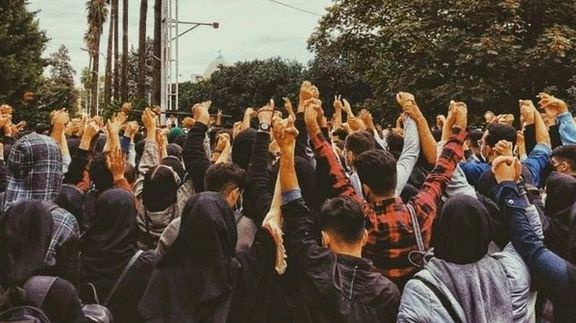
Iran's Ministry of Intelligence has interrogated students from Allameh Tabatabai University in Tehran as the anniversary of Mahsa Amini’s death approaches.
Students from several universities, including Tabatabai, Beheshti, Khajeh Nasir, Tehran, Amirkabir, and Ferdowsi, have been summoned by the authorities ahead of the September anniversary of Amini’s death. These summonses come amidst escalating pressure on student activists affiliated with the protest movement and have prompted concerns among student communities and human rights advocates.
A Telegram channel known as ‘United Students’ revealed that out of a group of 15 students from Allameh University who had previously been contacted by intelligence agencies, six have been summoned to the Ministry of Intelligence where they underwent extensive questioning.
The interrogations, some spanning up to five hours, were allegedly based on university security reports, with a specific focus on protests that transpired on March 7. These protests have been linked to concerns surrounding the serial poisoning of school students.
During these interrogations, the six students reportedly faced threats of "detention and judicial action”.
Simultaneously, student activists from Esfahan University released a comprehensive report documenting instances of actions and suppression throughout the ‘Women, Life, Freedom’ movement. Approximately 500 students from Esfahan and Esfahan University of Medical Sciences were subjected to summons and interrogations by the Ministry of Intelligence between September and November.
As the one-year anniversary of the widespread protests in Iranian universities approaches, there has been a wave of anonymous phone calls to students and subsequent summoning by security entities.